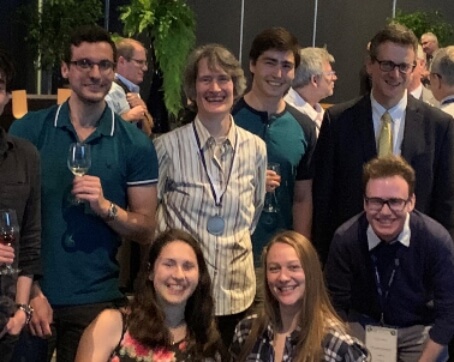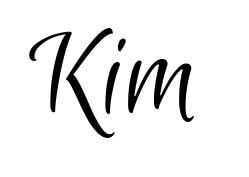
Message from the CMOS President for August 2019: Working for Our Members, So They Can Work for Science
– By Kimberly Strong, CMOS President and Professor & Chair, Department of Physics, University of Toronto –
The news is awash with stories of ongoing, climate-related disasters from the tropics to the Arctic. On the date that I write this, the Amazon rainforest is seeing wildfires raging at a rate well beyond normal. With the dry season running until October, there is no immediate end in sight, and global concern is rising daily. Meanwhile, just a few weeks ago, the US National Snow and Ice Data Center reported record-breaking melting of the Greenland ice sheet, with total melt runoff estimated at 55 billion tons, enough to fill 22 million Olympic-sized swimming pools with water.

At times like these, societies like CMOS are more important than ever. With a scientific membership numbering more than 700, CMOS brings together weather, atmosphere, ocean and climate scientists from across Canada.
And surely, there is vital work that needs to be done right now within the scientific community to support our changing world. As CMOS President, one of my jobs is to ensure that we support our members in the best way possible, to do their best work for our environment and for our nation. I would like to take this opportunity to share with you some recent progress on CMOS activities related to the three themes that I plan to focus on over the next year.
CMOS Outreach and Visibility
As a scientific society whose members include many internationally recognized experts in atmospheric, oceanographic, and climate science, CMOS is uniquely positioned to provide objective scientific information about climate change to Canadians. We have recently released a new position statement on the science and implications of climate change. The full text can be found in this issue of the CMOS Bulletin and at https://www.cmos.ca/site/ps_pos_statements, along with previous position statements. I encourage you to read it and to make use of it when communicating with Canadians about climate change.
Our sister society, the Australian Meteorological and Oceanographic Society has also recently released a Supplementary Statement on the IPCC Special Report on Global Warming of 1.5°C. This statement is supplementary to our CMOS Statement on the IPCC Special Report on Global Warming of 1.5°C released in November 2018, which AMOS endorsed earlier this year. Also on this topic, you may also be interested in having a look at the American Meteorological Society’s recently updated Information Statement on Climate Change.
To remain relevant, CMOS must be active and visible on issues related to atmospheric and oceanic sciences and related environmental disciplines. To this end, CMOS, along with CGU and JPDL Inc. hosted the IUGG General Assembly in Montreal from July 8-18. The conference was a great success, with approximately 3000 talks and 2000 posters from more than 50 countries. I thank the Montreal Centre and all CMOS members who helped organize and run this year’s IUGG General Assembly, particularly Dominique Paquin, who did a splendid job as CMOS Liaison for the conference. Congratulations to all who were involved!
CMOS Membership and Student Involvement
New members are essential to the future of CMOS, and to this end, we are working on clearly articulating the role and relevance of the society, as well as the benefits and responsibilities of membership. We have also set up an ad hoc working group to oversee the redesign of the CMOS website over the coming year – if you have thoughts on how we can improve our website, please send them along to me.
A recent analysis has shown that free membership for students, implemented in 2017, has had a positive impact, resulting in student membership almost doubling that year. As a percentage of the total membership, students comprised 14% in 2016, increasing to 25% in 2017 and 23% now.
In late July, I met with our new National Student Representative, Ellen Gute, to talk about student engagement in CMOS. Ellen has some great ideas and to help her implement them, we need an active Student Committee. Ellen is the Chair of this committee, which should have one student member from each CMOS Centre. If you’d like to get involved, please contact me.
CMOS Education and Mentorship
There are a number of areas where I wan to strengthen CMOS activities related to education, particularly through revitalizing the School and Public Education Committee (SPEC) and the University and Professional Education Committee (UPEC), and increasing mentorship opportunities, possibly in partnership with our Private Sector Committee (PSC).
One long-standing CMOS activity is supporting the participation of K-12 science teachers in Project Atmosphere and Project Maury, two summer workshops offered by the American Meteorological Society. While Project Maury is co-sponsored by the Canadian National Committee for the Scientific Committee on Oceanic Research (CNC/SCOR), we are seeking a new partner to join CMOS in supporting the future participation of teachers in Project Atmosphere – I welcome any suggestions!
In closing, I thank you for the honour of having been invited to serve as CMOS President this year, and I invite you to get in touch (president@cmos.ca) if you would like to discuss CMOS activities.
Best wishes,

CMOS President, Ellen Gute, IUGG General Assembly, Kimberly Strong, Project Maury
